
The intricate design of an automotive structure is fundamental to its performance, safety, and aesthetic appeal. Each element plays a crucial role in the overall functionality, ensuring that the vehicle operates seamlessly while providing comfort to its occupants. Recognizing how these elements interact can enhance one’s appreciation for engineering and design.
In the realm of automotive maintenance and modification, a comprehensive understanding of the vehicle’s anatomy is invaluable. Whether you’re a seasoned mechanic or a passionate DIY enthusiast, familiarizing yourself with the various segments can streamline repairs and upgrades. This knowledge empowers individuals to make informed decisions regarding modifications and replacements.
Exploring the various components and their interrelations unveils the complexity of automotive engineering. Each section, from the chassis to the exterior features, contributes to the vehicle’s overall integrity and performance. A detailed breakdown of these components will provide insights into their functions and the significance of proper maintenance.
Toyota Tundra Overview

This section offers a comprehensive insight into a robust vehicle designed for performance and utility. Renowned for its capability and durability, it appeals to those seeking both ruggedness and comfort in their driving experience.
Equipped with a range of advanced features and engineering excellence, this vehicle stands out in the competitive landscape of full-size trucks. Its design focuses on strength and reliability, making it a preferred choice for various tasks, from heavy-duty hauling to everyday commuting.
| Feature | Description |
|---|---|
| Engine Options | Available powerful engines delivering exceptional performance. |
| Interior Comfort | Spacious cabin with high-quality materials and advanced technology. |
| Towing Capacity | Impressive towing abilities suited for various needs. |
| Safety Features | Cutting-edge safety technologies ensuring driver and passenger protection. |
Importance of Body Parts Diagrams
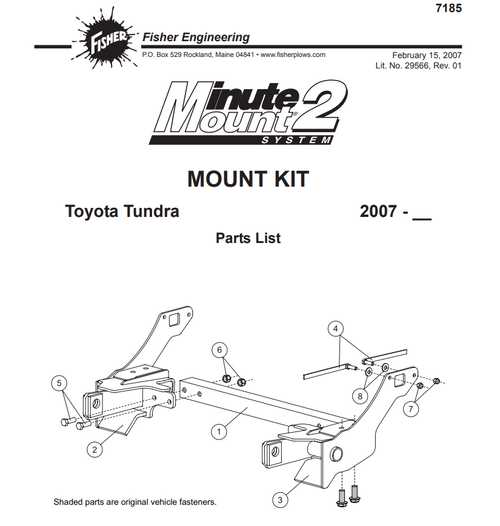
Visual representations of vehicle components play a crucial role in understanding and maintaining automotive systems. These illustrations facilitate efficient repairs and enhance overall knowledge of the vehicle’s structure.
- Streamline repair processes
- Improve communication among technicians
- Enhance safety by ensuring correct installations
- Assist in identifying components quickly
Moreover, these visuals serve as an ultimate reference point for both professionals and enthusiasts, allowing for a deeper comprehension of the intricate relationships between various elements.
Common Issues with Tundra Body Parts
Many vehicle owners encounter challenges related to external components over time. Understanding these frequent problems can help in proactive maintenance and ensure a longer lifespan for the vehicle. Common concerns may arise from wear and tear, environmental factors, and even manufacturing inconsistencies.
Wear and Tear

As with any automobile, aging elements can lead to various issues. Deterioration due to exposure to elements such as sun, rain, and snow can cause fading, cracking, or warping. Regular inspections are essential to identify these signs early and take corrective actions to prevent further damage.
Manufacturing Flaws

Occasionally, some external elements may have defects from the production process. This can lead to misalignments, improper fit, or even early failure of certain components. Being aware of potential recalls or known issues related to specific models can aid owners in addressing these problems promptly.
Identifying Major Components in Diagrams
Understanding the primary elements in visual representations is crucial for effective maintenance and repair. Each illustration serves as a roadmap, guiding users through the intricacies of a vehicle’s structure. Recognizing these key components helps in both identifying issues and ensuring proper assembly.
Key Elements to Look For
When examining visual guides, focus on several essential features that indicate the layout and relationship of components:
| Component | Description |
|---|---|
| Frame | The main structure supporting all other elements. |
| Suspension | System that absorbs shocks and maintains contact with the ground. |
| Engine | The powerhouse that drives the vehicle. |
Tips for Efficient Analysis
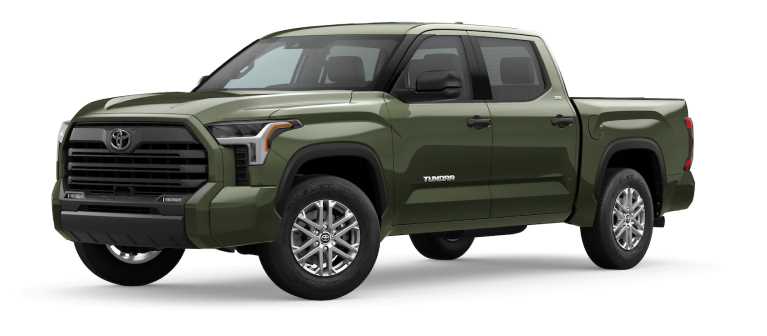
To efficiently interpret these visuals, familiarize yourself with common symbols and terminologies. This knowledge will empower you to delve deeper into the mechanical workings and enhance your overall understanding.
Materials Used in Toyota Tundra Body
The construction of modern vehicles involves a variety of materials that enhance performance, durability, and aesthetic appeal. Understanding the types of substances employed in the framework can provide insights into their strength and efficiency.
- Steel: Known for its robustness, steel is frequently utilized in the structural components. It provides excellent strength-to-weight ratios and is cost-effective.
- Aluminum: Lightweight and resistant to corrosion, aluminum is often found in outer panels and parts that require a reduction in overall weight to improve fuel efficiency.
- Plastic: Commonly used in interior and exterior elements, plastics are favored for their versatility, ease of manufacturing, and ability to reduce weight without compromising strength.
- Composite Materials: These materials combine various substances to achieve desired properties such as enhanced impact resistance and reduced weight, making them ideal for certain applications.
The combination of these materials ensures a balance between strength, safety, and performance, contributing to the overall functionality and longevity of the vehicle.
- Environmental considerations are also crucial in material selection, promoting the use of recyclable substances.
- Technological advancements have led to the development of new alloys and composites, enhancing the structural integrity.
- Every component is designed with specific requirements in mind, ensuring optimal performance under varying conditions.
Ultimately, the choice of materials plays a pivotal role in shaping the efficiency, safety, and durability of the vehicle, reflecting the evolving standards in automotive engineering.
Maintenance Tips for Body Parts
Proper upkeep of your vehicle’s exterior components is essential for longevity and performance. Regular inspections and proactive measures can prevent costly repairs and enhance the overall aesthetic appeal. Understanding the importance of maintaining these elements will not only keep your ride looking great but also ensure it functions optimally.
Regular Inspections
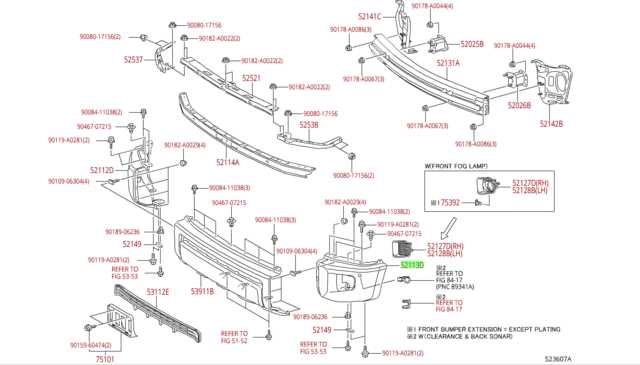
Conduct routine checks to identify any signs of wear or damage. Look for scratches, dents, or rust, as these issues can escalate if left unaddressed. Inspect seals and trim to ensure they are intact, as compromised areas can lead to further deterioration. Early detection is key to effective maintenance.
Cleaning and Protection
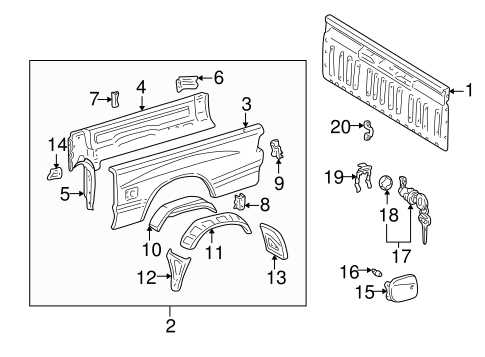
Keep the surfaces clean by washing them regularly with mild soap and water. Avoid harsh chemicals that can strip protective coatings. Consider applying a sealant or wax to guard against environmental factors, such as UV rays and moisture. This not only enhances shine but also provides an additional layer of protection against corrosion.
Replacement Procedures for Key Areas
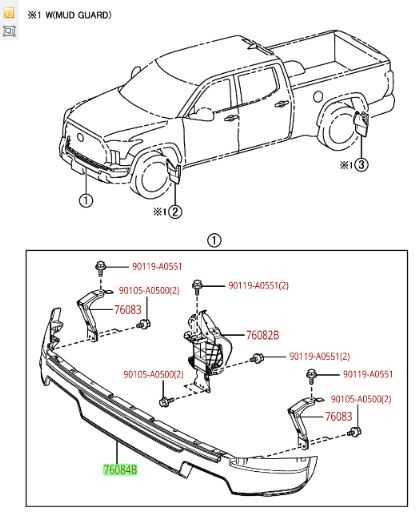
When addressing the need for component replacement in your vehicle, understanding the procedures for various critical sections is essential. Each area may have specific steps that ensure proper fitting and functionality. This guide will explore the methods required for effective replacements in these zones, focusing on safety and efficiency.
| Area | Procedure |
|---|---|
| Front Bumper | Remove fasteners, disconnect wiring, and carefully detach the bumper. Install the new unit by reversing the process. |
| Fender | Unbolt the fender from the chassis, detach any attached components, and replace with the new fender. Ensure all connections are secure. |
| Rear Tailgate | Support the tailgate, remove hinges, and detach any wiring. Install the replacement by securing the hinges and reconnecting the wiring. |
| Hood | Open the hood, unbolt it from the hinges, and lift it off. Position the new hood and tighten bolts to secure it in place. |
How to Read Body Parts Diagrams

Understanding visual representations of vehicle components is essential for effective maintenance and repair. These illustrations serve as guides, helping enthusiasts and professionals alike identify various sections and elements. By familiarizing yourself with the symbols, labels, and organization, you can enhance your ability to navigate these resources with ease.
Key Elements of the Illustrations
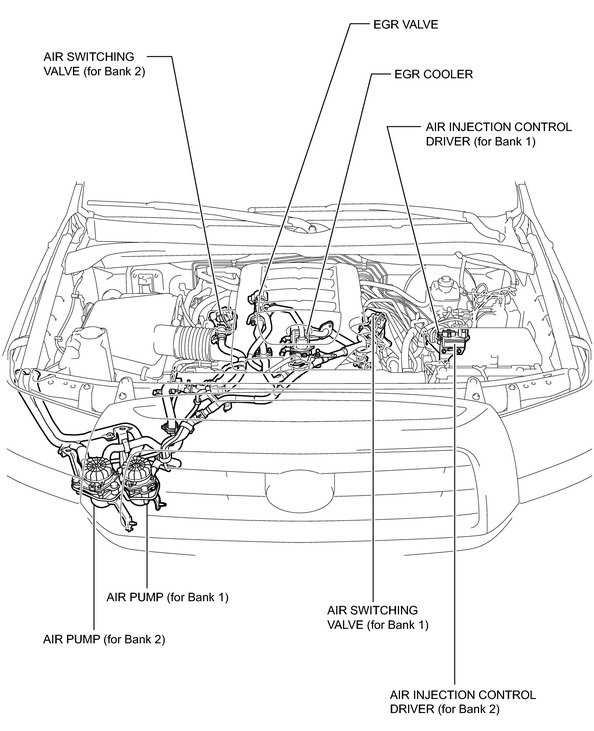
Typically, these visuals include several important components that facilitate comprehension. Recognizing these elements will aid in effective interpretation:
| Element | Description |
|---|---|
| Labels | Indicate specific components, often with numerical references. |
| Symbols | Represent various parts and their functions, often standardized across illustrations. |
| Lines | Show connections or relationships between components, including electrical or fluid pathways. |
| Legend | Explains the symbols and provides additional context for interpretation. |
Tips for Effective Interpretation
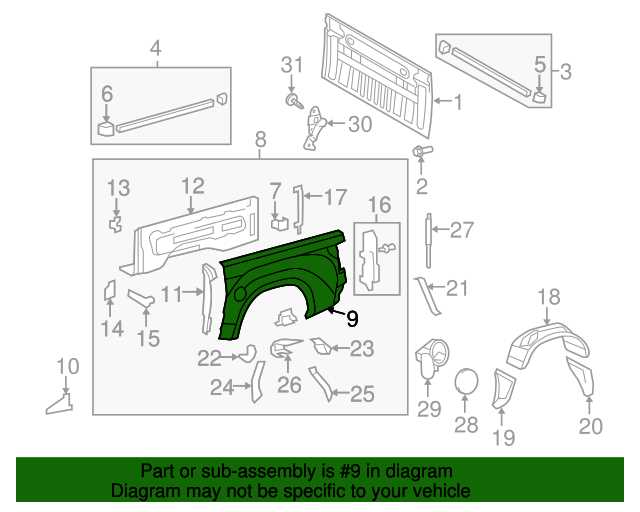
When approaching these visual aids, consider the following strategies to improve your understanding:
- Start by reviewing the legend to familiarize yourself with the symbols.
- Identify the main sections of the illustration to establish a framework.
- Follow the connections indicated by lines to understand how components interact.
- Cross-reference labels with any written descriptions or repair manuals for clarity.
Aftermarket vs. OEM Body Parts
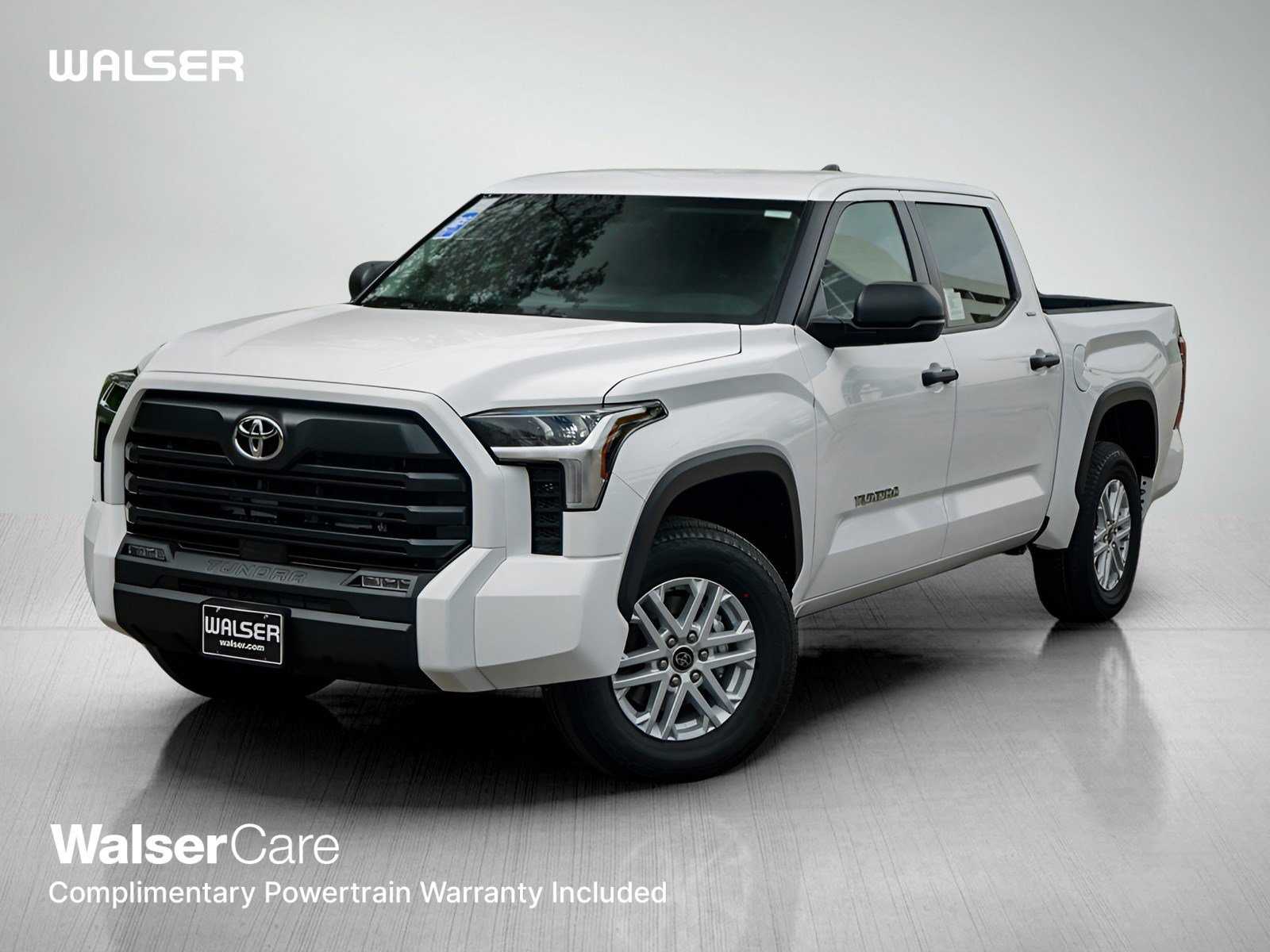
This section explores the differences between two types of vehicle components available on the market. Understanding these distinctions is crucial for owners looking to make informed choices for repairs and upgrades.
| Aspect | Aftermarket | OEM |
|---|---|---|
| Quality | Varies widely, can be high or low. | Typically consistent, made to original specifications. |
| Cost | Usually more affordable, competitive pricing. | Generally more expensive, premium quality. |
| Availability | Often more readily available, numerous options. | Limited to specific manufacturers, less variety. |
| Warranty | Warranties vary; some may not offer coverage. | Standardized warranties provided by manufacturers. |
Customization Options for Tundra Owners
Many enthusiasts seek to personalize their vehicles, enhancing both aesthetics and functionality. From performance upgrades to visual enhancements, there are numerous ways to make your ride truly unique. Exploring various options can transform a standard model into a reflection of individual style and needs.
Performance Enhancements
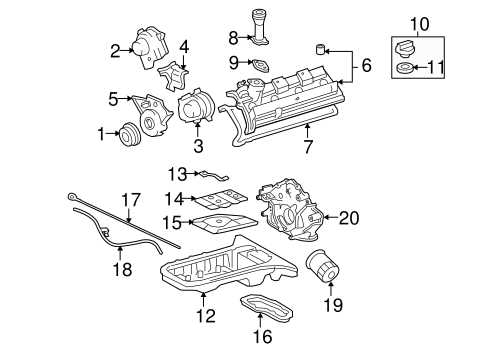
Upgrading your vehicle’s performance can significantly improve driving experience. Consider options such as suspension kits, which can provide better handling and a smoother ride. Additionally, engine tuning can increase horsepower and torque, delivering a more exhilarating performance on the road.
Aesthetic Modifications

Visual customization is equally important for many owners. Installing aftermarket wheels can change the overall appearance, while adding custom paint jobs or decals allows for personal expression. Lighting upgrades, such as LED headlights or underglow kits, can further enhance the vehicle’s look, making it stand out on any street.
Tools Needed for Body Repairs
Effective restoration of vehicle exterior requires a variety of essential instruments. Whether you are addressing minor dents or more extensive damage, having the right tools at your disposal can significantly enhance the repair process. This section outlines the crucial equipment needed to achieve professional-quality results.
Essential Equipment

First and foremost, a good set of hand tools is imperative. Wrenches, screwdrivers, and pliers are necessary for disassembling components and accessing the areas that need attention. Additionally, specialized tools such as a slide hammer or dent puller can aid in removing imperfections from the surface.
Protective Gear and Finishing Tools
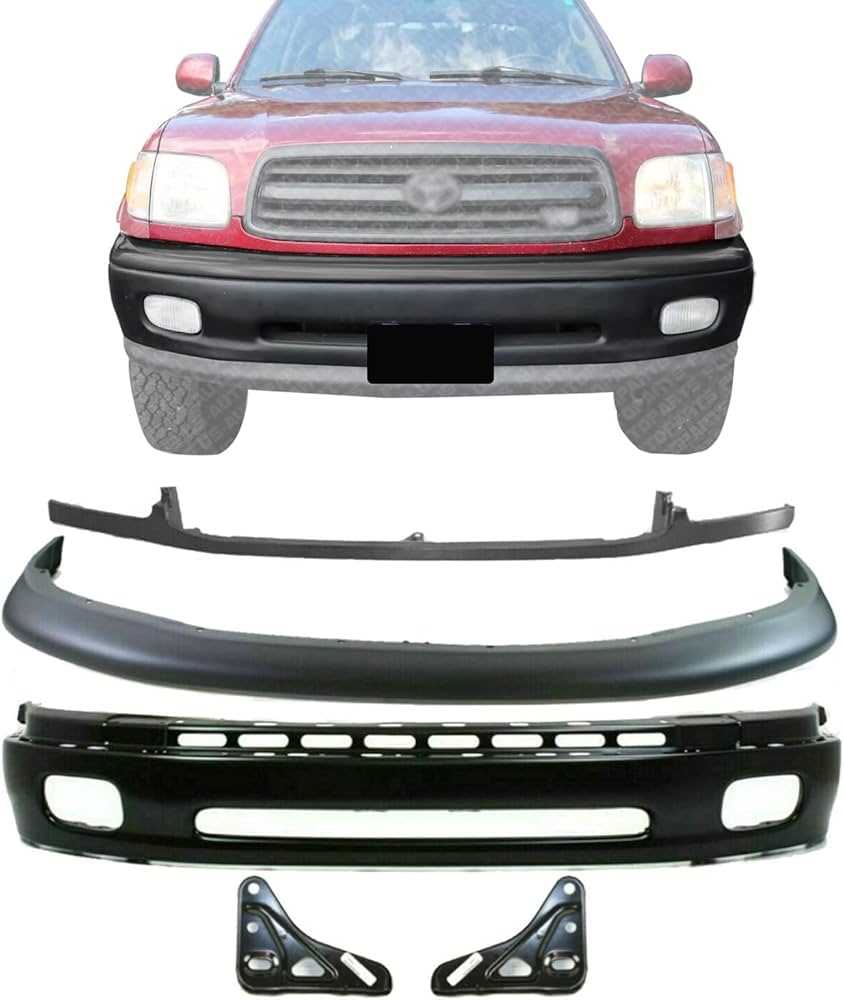
Safety should never be overlooked; wearing gloves and goggles is vital to protect yourself during repairs. Once the physical damage is addressed, finishing tools, including sanders and paint sprayers, will help restore the vehicle’s appearance to its original state. Proper preparation and the right finishing techniques are key to achieving a seamless look.
Resources for Finding Body Parts
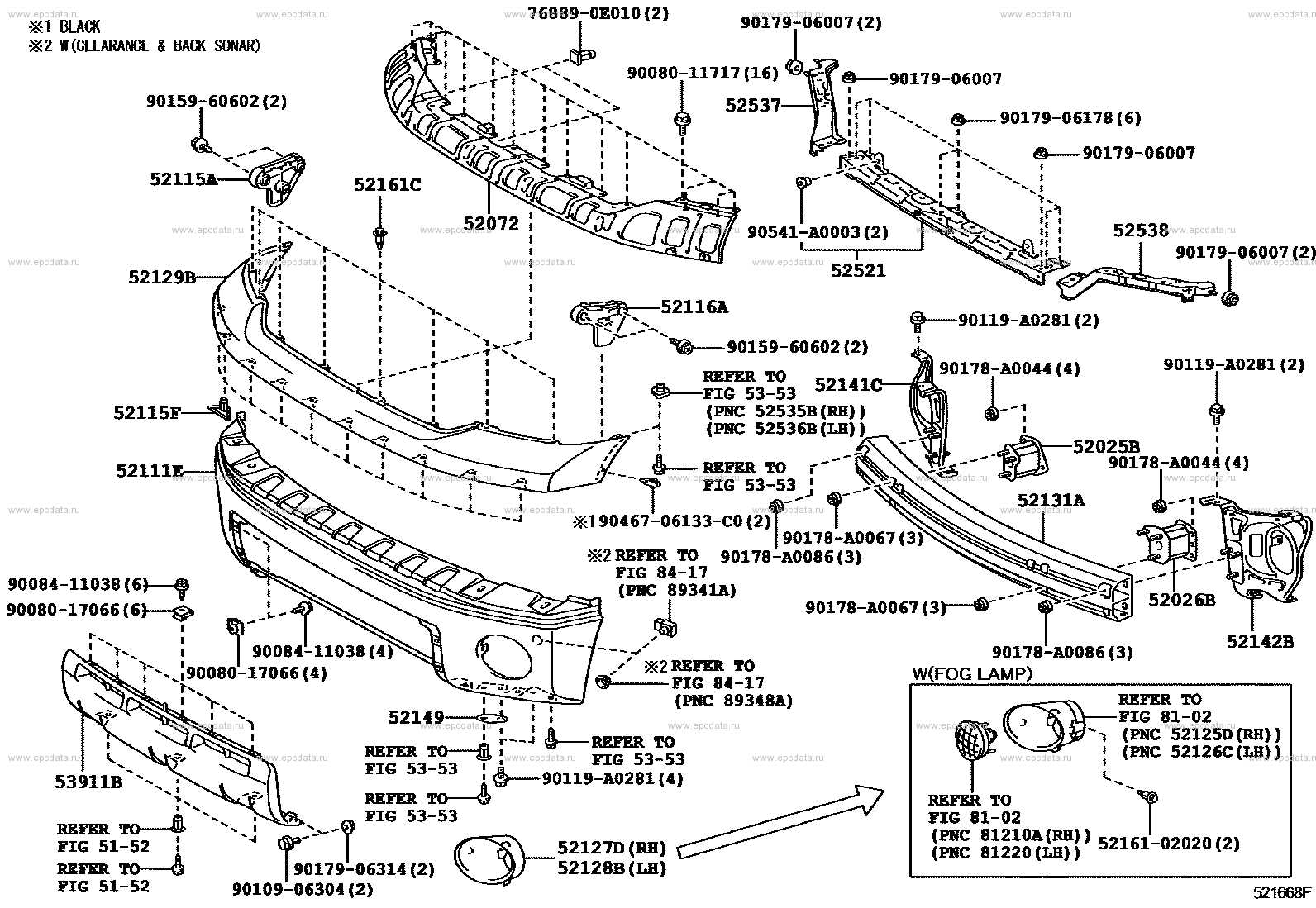
When it comes to sourcing components for vehicle repairs, a variety of avenues are available to enthusiasts and owners. Whether seeking replacements for damaged sections or upgrading existing features, knowing where to look can simplify the process significantly. This section explores some effective strategies and resources for acquiring essential elements for your automobile.
Online Marketplaces
Digital platforms have transformed the way individuals procure vehicle components. Websites like eBay and Craigslist provide access to a wide array of options, from new to gently used items. Utilizing search filters can help narrow down choices based on criteria such as condition, price range, and location. It’s advisable to examine seller ratings and reviews to ensure a reliable transaction.
Specialized Auto Salvage Yards
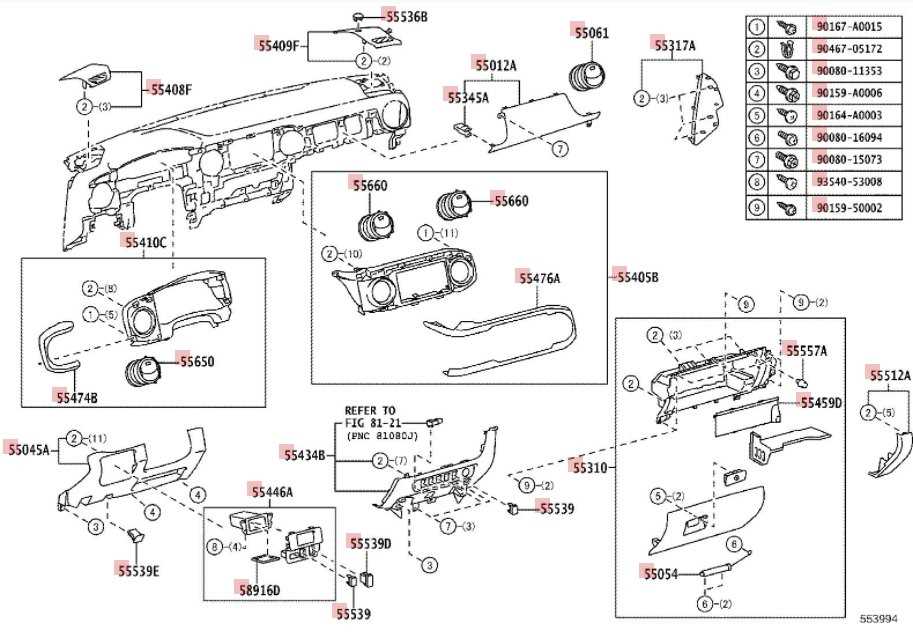
Visiting auto salvage yards can be a treasure hunt for vehicle enthusiasts. These locations often stock a vast selection of salvaged materials from various models, offering parts at significantly reduced prices. Building relationships with local salvage operators may lead to insights on upcoming inventory and exclusive deals. Always remember to verify the condition and compatibility of any items before finalizing a purchase.